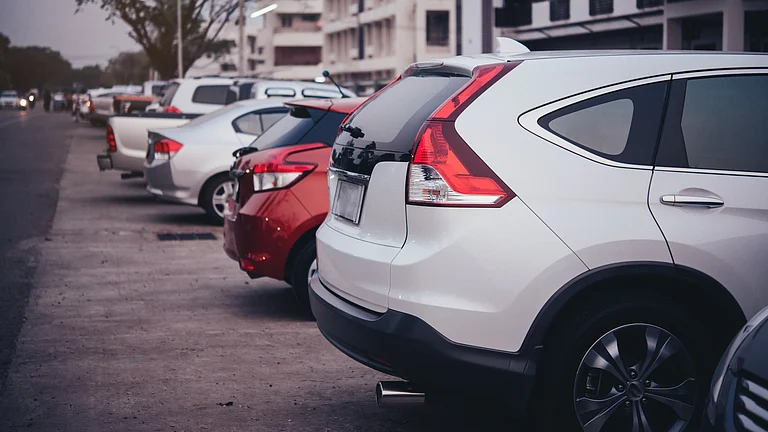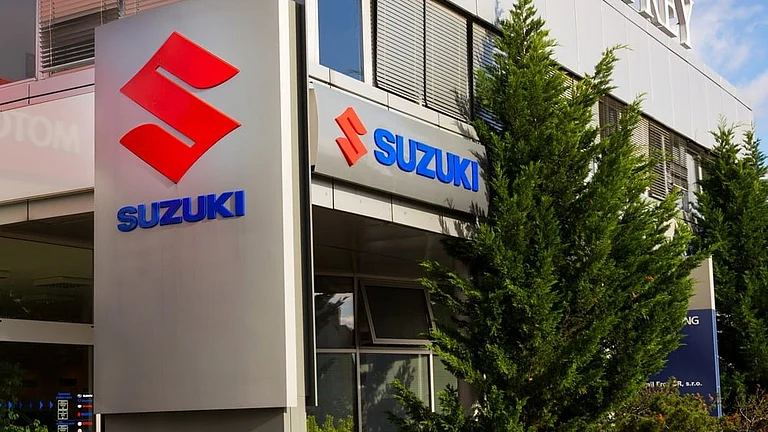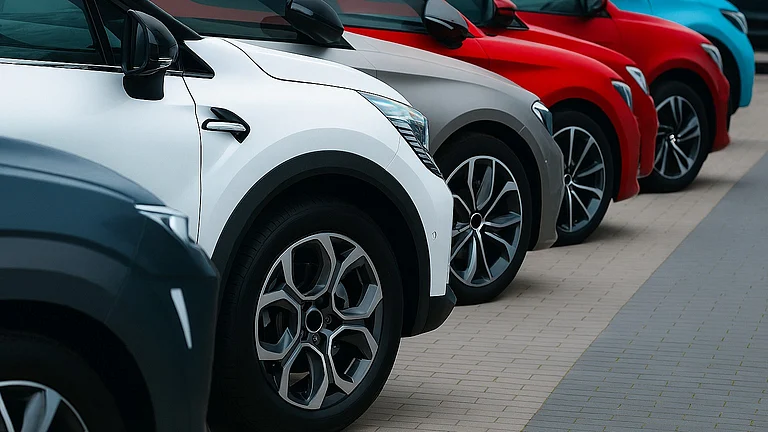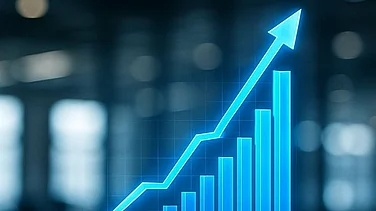Tesla's India Entry: More than Trump's recent meeting with PM Modi, what actually caught everyone's attention was Modi’s informal meet with Tesla boss Elon Musk. While speculations around Tesla’s India entry have been around for years without materialising, this time, things might take a different turn.
Earlier this week, ancillary companies saw this as a reason to cheer, with their stocks getting a sentimental boost. However, for big names like Tata Motors and Maruti Suzuki, the mood might have been mixed because if Tesla did step in, the EV race would only get tougher.
So far this year, the auto index has slipped by 4.6%. Despite a consumption boost announced via an income tax cut during the budget, investors have found little reason to cheer. All this comes at a time when India has already set an ambitious target of capturing a 30% share of EVs in new car sales by 2030. And right now, things aren't going as steadily as planned.
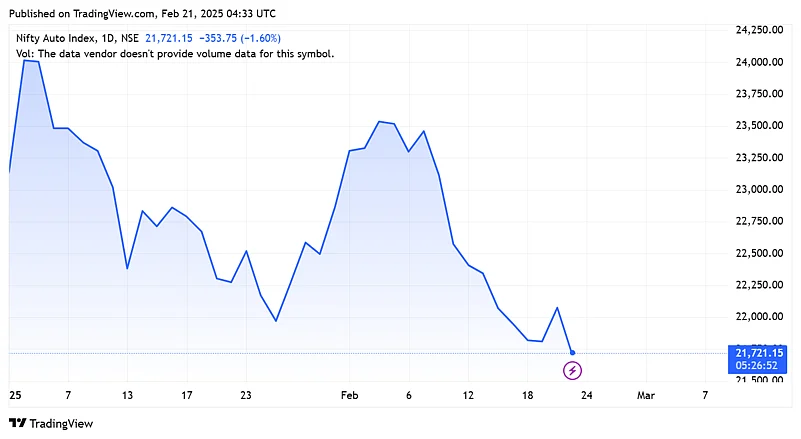
The recent cut in basic customs duty on imported luxury cars above $40,000—from 125% to 70%—is already seen as a major setback for domestic auto players. And Trump’s latest threat of reciprocal tariffs could make things even worse. However, India’s auto giants seem to have a plan at hand.
Will discounts & deals save the day?
Earlier this week, Tata Motors announced various offers for its existing and new customer base, which pushed the shares of the company up by nearly 1.5% on the bourses. The auto giant introduced a 45-day period wherein customers could avail an exchange bonus of up to Rs 50,000 on any passenger vehicle.
"As a part of this 45-day bumper celebration, TATA.ev has unveiled a range of benefits for both new and existing customers looking to purchase their favorite Tata EV," the company said.
It also introduced free charging benefits (for 6 months) at company power stations and free installation of home chargers with every EV purchase.
Maruti Suzuki, meanwhile, mentioned battery-sourcing deals as part of its new mid-term plan for FY26-31E. As per its new strategy, the company will source BEV (Battery Electric Vehicle) batteries from BYD, HEV (hybrid electric vehicle) batteries from TDS Lithium-Ion Battery Gujarat and motorcycle batteries from Tata Gotion. Maruti Suzuki is also planning to set up a factory and procure battery materials internally. However, the company has revised its target for EVs from six to just four models by FY31E. E-Vitara is the first in-line followed by other models.
It is also targeting a 50% market share in the domestic region to establish itself as the leading automaker in production, exports and BEV sales. As of now, Tata Motors leads the EV game as the auto giant has already crossed 2,00,000 EV sales.
Nomura has maintained its Neutral rating on the stock, citing increased competition in the EV space as a major risk. "Powertrain mix projections indicate that there may be a strong focus on HEVs and BEVs in the next few years while CNG mix may remain stable from here. However, we note the company has retained 15% mix for BEVs despite planning to launch four models now instead of six earlier. This mix could be more difficult to achieve," the global investment firm said in a report and added that suppliers, including Uno Minda and Sansera, could be key beneficiaries from the recent events playing out.
Outlook Ahead
While Tesla is yet to announce concrete plans in the domestic region, analysts are expecting competition to intensify in India with EV players announcing several discounts. OEMs are expected to roll out more offers to attract customers, as per market players.
The EV industry currently makes up about 2-2.5% (100,000–110,000 units annually) of the total PV market, with Tata Motors and MG Motor leading the segment. As of now, major auto giants like Mahindra and Mahindra, Hyundai and Maruti have already ramped up competition with fresh EV launches.
"While competition will intensify in the EV space, we believe this will not have a significant impact on the major PV OEMs, other than Tata Motors (EVs making up 13% of total volume for Q3FY25, with market share declining to 45% in Jan-25 compared to 68% in Jan-24), as EVs currently form a small part of the total industry, and adoption will depend on the overall development of EV infrastructure," said Utsav Verma, head of research- Equities, Choice Broking.
Auto sector's Q3 performance has remained largely muted with analysts expecting a complicated scenario ahead owing to Trump's tariff threat. In the last 6 months, the Nifty Auto index has slipped over 13% as subdued demand continued to weigh heavily on investor sentiment. With Tesla's entry ahead, analysts expect ancillary stocks to see stronger performance than auto giants.








_1642172652.jpg?auto=format%2Ccompress&fit=max&format=webp&w=768&dpr=1.0)


